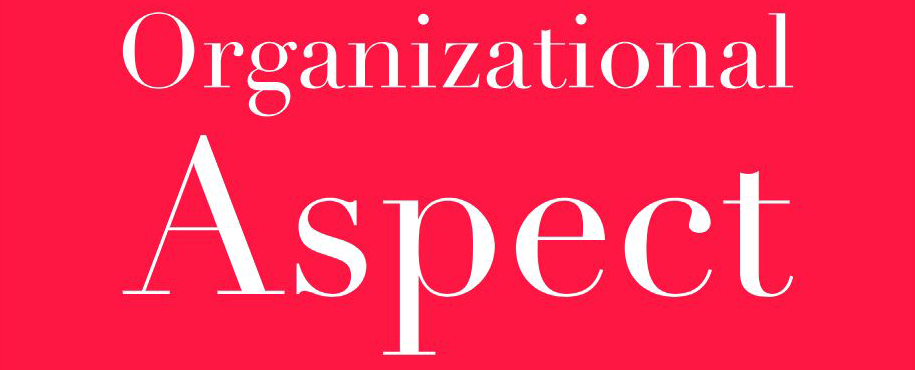As a part of management field, organizational behaviour includes quite wide areas:
We offer services in all field of management and organizations, organizational behaviour.
Individual Behavior
Group Dynamics
Leadership Styles
Organizational Culture
Communication
Change Management
Conflict Resolution
Employee Motivation
Organizational Structure
Work-Life Balance
Decision-Making
Job Design
Diversity and Inclusion
Organizational Development
Emotional Intelligence
Job Stress and Burnout
Organizational Justice
Employee Engagement
Power and Politics
Organizational Learning
Organizational Communication
Organizational Ethics
Organizational Climate
Organizational Citizenship Behavior
Organizational Socialization
Job Satisfaction and Performance
Talent Management
Organizational Identity
Organizational Resilience
Organizational Effectiveness
Organizational Power Dynamics
Organizational Commitment
Organizational Trust
Organizational Performance Management
Virtual and Remote Work
- Individual Behavior:
- Employee Motivation
- Job Satisfaction and Performance
- Emotional Intelligence
- Job Stress and Burnout
- Organizational Commitment
- Group Dynamics:
- Team Dynamics
- Communication
- Decision-Making
- Conflict Resolution
- Organizational Citizenship Behavior
- Leadership and Organizational Culture:
- Leadership Styles
- Organizational Culture
- Power and Politics
- Organizational Identity
- Organizational Trust
- Organizational Development and Effectiveness:
- Organizational Development
- Change Management
- Organizational Learning
- Organizational Resilience
- Organizational Effectiveness
- Talent Management and Diversity:
- Talent Management
- Diversity and Inclusion
- Organizational Socialization
- Organizational Ethics and Justice:
- Organizational Ethics
- Organizational Justice
- Work-Life Balance and Remote Work:
- Work-Life Balance
- Virtual and Remote Work
- Individual Behavior: OB examines individual behavior, including attitudes, motivation, job satisfaction, personality traits, and perception. Understanding these factors can help managers and leaders improve employee satisfaction and performance.
- Group Dynamics: OB also looks at group behavior, such as team dynamics, communication patterns, and decision-making processes. Building effective teams and fostering collaboration are essential for achieving organizational goals.
- Leadership Styles: The study of OB includes exploring different leadership styles and their impact on employee behavior and performance. Effective leadership can inspire and motivate employees to excel.
- Organizational Culture: OB assesses the values, beliefs, norms, and customs that shape an organization’s culture. A positive and healthy organizational culture fosters employee engagement and overall organizational success.
- Communication: Effective communication is crucial for a successful organization. OB examines communication patterns, barriers, and strategies to improve information flow within the company.
- Change Management: Organizational behavior addresses the challenges of implementing changes within a company. It explores how individuals and groups respond to change and how to manage these transitions effectively.
- Conflict Resolution: OB provides insights into understanding and managing conflicts that arise within organizations. Strategies for constructive conflict resolution can lead to improved working relationships and higher productivity.
- Employee Motivation: Understanding what motivates employees is essential for fostering a productive work environment. OB explores different motivational theories and how they can be applied in practice.
- Organizational Structure: The study of OB considers how organizational structures impact communication, decision-making, and employee satisfaction. The right structure can enhance efficiency and facilitate goal achievement.
- Work-Life Balance: Modern organizational behavior also emphasizes the importance of work-life balance and employee well-being. A healthy work-life balance contributes to employee retention and job satisfaction.
- Decision-Making: OB explores how individuals and groups make decisions within an organization. Understanding decision-making processes helps improve the quality of decisions and avoid biases.
- Job Design: This aspect focuses on how jobs are structured and designed within an organization. An effective job design can lead to higher job satisfaction, increased productivity, and reduced turnover.
- Diversity and Inclusion: OB examines the impact of diversity within the workforce and the importance of creating an inclusive environment. Embracing diversity leads to creativity, better problem-solving, and a broader perspective.
- Organizational Development: OB includes strategies and interventions aimed at enhancing organizational effectiveness and performance over time. This could involve training, leadership development, and culture change initiatives.
- Emotional Intelligence: This concept explores the ability to understand and manage one’s emotions and the emotions of others. Emotional intelligence is crucial for effective leadership, teamwork, and employee relationships.
- Job Stress and Burnout: OB investigates the causes and consequences of job-related stress and burnout. Identifying and managing stressors can improve employee well-being and reduce turnover.
- Organizational Justice: This area focuses on fairness within the organization, including distributive justice (fairness in rewards), procedural justice (fairness in decision-making processes), and interactional justice (fairness in interpersonal treatment).
- Employee Engagement: OB examines the factors that contribute to employee engagement, such as meaningful work, recognition, and opportunities for growth. Engaged employees are more committed and productive.
- Power and Politics: OB explores how power and politics influence organizational dynamics. Understanding these dynamics can help navigate complex organizational hierarchies and improve decision-making.
- Organizational Learning: This aspect looks at how organizations acquire, share, and apply knowledge to adapt to changes and improve performance over time.
- Organizational Communication: Examining communication channels, patterns, and barriers within an organization to improve information flow and understanding.
22.Organizational Ethics: Focusing on ethical decision-making and behavior within the organization and its impact on stakeholders.
- Organizational Climate: Analyzing the prevailing atmosphere and mood within an organization, which influences employees’ perceptions and attitudes.
- Organizational Citizenship Behavior: Exploring discretionary behaviors that go beyond formal job requirements and contribute to the organization’s well-being.
- Organizational Socialization: Understanding the process through which new employees adapt to the organization’s culture and become productive members.
- Job Satisfaction and Performance: Investigating the relationship between job satisfaction and employee performance.
- Talent Management: Strategies for attracting, developing, and retaining talented individuals within the organization.
- Organizational Identity: Examining how employees perceive and relate to the organization’s values, mission, and vision.
- Organizational Resilience: Analyzing an organization’s ability to adapt, recover, and thrive in the face of challenges and disruptions.
- Organizational Effectiveness: Assessing the extent to which an organization achieves its goals and objectives.
- Organizational Power Dynamics: Exploring how power is distributed and exercised within the organization and its impact on decision-making.
- Organizational Commitment: Understanding employees’ emotional attachment and dedication to the organization.
- Organizational Trust: Examining the level of trust among employees and between employees and management.
- Organizational Performance Management: Developing systems to measure and improve employee and organizational performance.
- Virtual and Remote Work: Studying the challenges and opportunities of managing virtual and remote teams.








